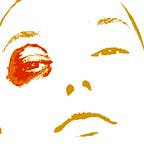by the skin of our teeth
At the dentist recently for a cleaning and checkup, they found it admirable that at the ripe old age of 68, I still had a mouth full of my own teeth.
But they also found two tiny packets of thinning enamel that were deemed potential future cavities. Rather than wait and see, they were quickly patched up.
Bringing me to ponder the phrase — by the skin of our teeth.
Job of the old testament bible and Thornton Wilder in his Pulitzer winning Broadway hit have made this idiom famous.
The epic comedy-drama is noted as among the most heterodox of classic American comedies — it broke nearly every established theatrical convention.
The phrase used as the title comes from the King James Bible, Job 19:20: “My bone cleaveth to my skin and to my flesh, and I am escaped with the skin of my teeth.”
Thornton Wilder’s The Skin of Our Teeth, has been beautifully remolded in several productions through the years.
First presented on Broadway in October 1942 just ten months after Pearl Harbor — this Pulitzer Prize-winning proto-absurdist comedy about the uncertain fate of the human race “was written on the eve of our entrance into the war and under strong emotion, and I think it mostly comes alive under conditions of crisis,” according to Wilder himself.
Today, the work seems all too timely, but also perplexing — more urgent than ever, yet less reassuring.
Teeth don’t have skin, of course, so the writer may have been alluding to the teeth’s surface or simply to a notional minute measure.
Yet fate and life have often proved fickle enough to turn on far less — forever altering the outcome, whether in ruin or success.
Spared or scalded we all have our own hair raising stories to tell. Grateful to have lived through them and come through at the other end.
Originally published at http://diywellbeing.blogspot.com.
